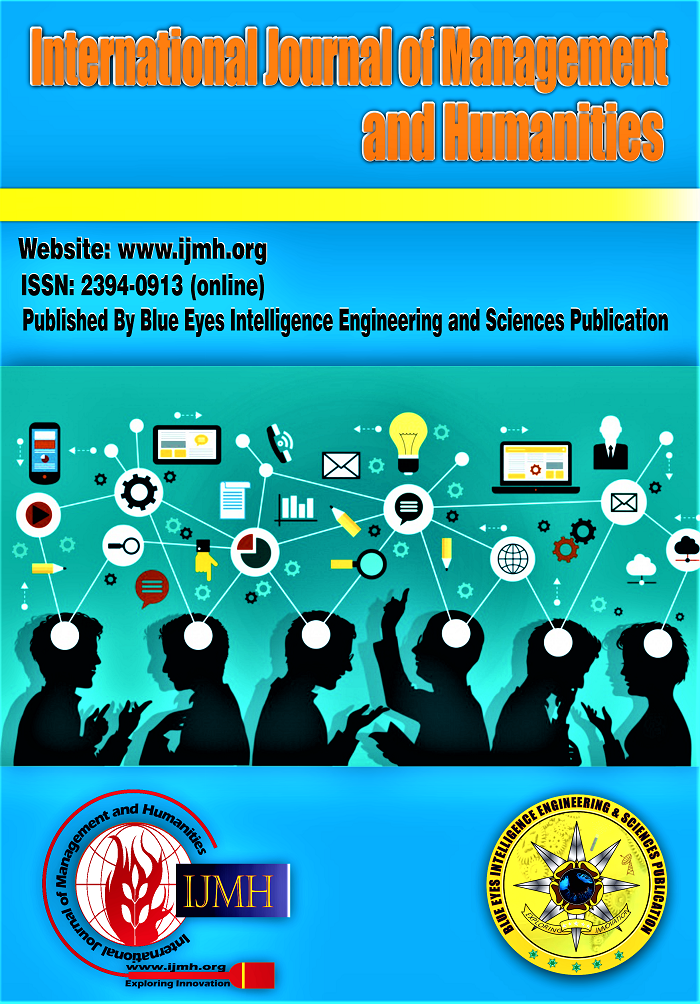Promoting Teamwork Among Students: Essential in Achievement of Educational Goals
Main Article Content
Abstract
In educational institutions of all levels, there are various job duties and responsibilities, which educators are required to carry out. They give projects and assignments to students, which they are required to carry out in a team, comprising of two or more students. The students need to communicate with each other in an effective manner in order to carry out all tasks successfully. Within the course of working on assignments and projects in a team, exchanging ideas and suggestions will be facilitating in carrying out all types of tasks and activities in a successful manner. In all grade levels, it is considered vital on a comprehensive basis. Hence, it is indispensable for them to form cordial and amiable terms and relationships with each other. The promotion of teamwork is advantageous to the students in achievement of educational goals. Furthermore, up-gradation will take place of overall system of education. One of the major benefits of teamwork is, students will obtain support and assistance from each other in doing well in one’s tasks and activities. Hence, teamwork is facilitating in promoting well-being and goodwill of individuals. Furthermore, the students are contributing efficiently in meeting the expectations of individuals in leadership positions. Therefore, in educational institutions of all levels, promoting teamwork among students is essential in achievement of educational goals. The main concepts that are taken into account in this research paper are, understanding the meaning and significance of teamwork, measures to be put into practice in promoting teamwork and advantages of promoting teamwork.
Downloads
Article Details
Section
How to Cite
References
Education First: People Living in Rural India have High Expectations. (2019). Retrieved June 29, 2024 from https://www.gaonconnection.com/read/
Effective Ways to Build Your Vocabulary. (n.d.). Research Foundation. Retrieved June 29, 2024 from https://www.jocrf.org/
Ethics: Definition, Scope, Nature and Objectives. (2018). Retrieved June 29, 2024 from https://nehakubms.wordpress.com/2018/09/02/ethics-definition-scope-nature-and-objectives/
Filgueira, C.H. & Filgueira, F. (2001). Economic and Social Development. Retrieved June 29, 2024 from https://www.esd-conference.com/upload/book_of_proceedings/Book_of_Proceedings_esdRioDeJaneiro2024_Online.pdf
Gaikwad, B.R. & Solunke, R.S. (2013). Growth of Higher Education in India. International Research Journal of Social Sciences, 2(8), 58-60. Retrieved June 29, 2024 from https://www.isca.in/IJSS/Archive/v2/i8/10.ISCA-IRJSS-2013-104.pdf
Al-Mahdawi, E. (2022). An Overview on Internationalisation within the United Kingdom Higher Education. In International Journal of Management and Humanities (Vol. 8, Issue 6, pp. 7–11). DOI: https://doi.org/10.35940/ijmh.f1423.018622
Kamalakar, Dr. G., & Kamala, Dr. K. (2023). New Dimension in Higher Education in India. In Indian Journal of Social Science and Literature (Vol. 1, Issue 4, pp. 27–33). DOI: https://doi.org/10.54105/ijssl.e1027.061422
Mulyawan, B., Meyliana, Hidayanto, A. N., & Prabowo, H. (2020). Ontological Base Information System in Higher Education. In International Journal of Engineering and Advanced Technology (Vol. 9, Issue 3, pp. 3762–3767). DOI: https://doi.org/10.35940/ijeat.c6429.029320
Gnanamkonda, V., Koundinya, C., & Krishna, C. G. (2019). ICT in Rural School Education: Impacting on Children Cognition. In International Journal of Innovative Technology and Exploring Engineering (Vol. 8, Issue 12, pp. 1697–1703). DOI: https://doi.org/10.35940/ijitee.l3176.1081219
Dr. Chitra S. (2024). Evaluating the Role of STEM Education in Empowering Secondary School Students. In International Journal of Emerging Science and Engineering (Vol. 12, Issue 8, pp. 7–12). DOI: https://doi.org/10.35940/ijese.i2581.12080724





